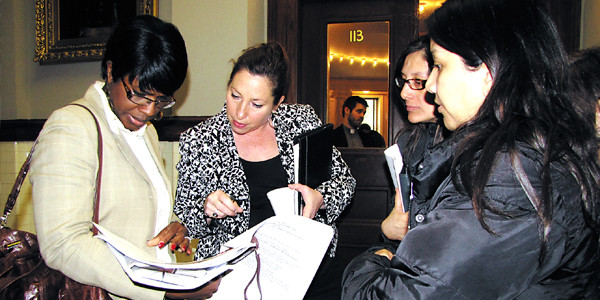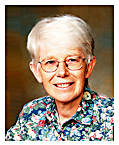
Werkhooven
DUBUQUE, Iowa – Sister Maria van Werkhooven, a Sister of Charity, BVM, will celebrate 50 years in religious life this summer.
In the Diocese of Jackson Sister van Werkhooven ministered as medical technologist and manager of the laboratories in Mound Bayou Community Hospital and Delta Health Center, Mound Bayou.
She worked as medical technologist in Papua New Guinea and Dubuque, Iowa, where she was also supervisor of the chemistry lab. In Memphis, Tenn., she received a fellowship in administration, and has served as manager and vice president of planning and business development, project specialist and director of administration, all in health care facilities. Currently she is the director of the Office of Medical Research, Regional Medical Center in Memphis.
“The places where I have ministered have each been object lessons in discovering how God is calling me to live in relationship with my BVM sisters and the people with whom I work and live. Having always worked in the area of healthcare . . . I have had professionally enriching opportunities,” says Sister Maria. She will enjoy a celebration as part of regular Saturday Vigil Mass on Aug. 30 at St. Peter Church, Memphis.

Welding
MILWAUKEE, Wis. – On June 21, 73 U.S. School Sisters of St. Francis celebrated milestone anniversaries of service as women religious. In addition, five lay women and men in associate relationship with the community celebrated their 40-year jubilee, and one celebrated her 25-year jubilee. Eight of these sisters served in the Diocese of Jackson:
Sister Arlene Welding, a native of Oakdale, Nebraska, celebrated her 75th anniversary. She has a bachelor’s degree from Alverno College in Milwaukee, Wis., and a master’s degree from the University of San Francisco. Sister Welding taught at St. Francis School in Yazoo City (1953-1962). She currently resides in Campbellsport, Wisconsin.

Doyle
Three sisters celebrated 70 years of religious life:
Sister Michele Doyle was born in Forest Park, Ill. She has a bachelor’s degree from Alverno College in Milwaukee, Wis., and master’s degrees from Loyola University and the University of St. Thomas. In the Diocese of Jackson, she taught at St. Francis High School in Yazoo City (1949–1969 and 1973-1975) and Jackson State University (1969–1975). She also served as director of adult religious education for the diocese (1975–1983) and was director of education at St. Francis of Assisi Parish in Madison (1991-2006).
Sister Doyle worked part-time at Mississippi Catholic for sevreal years helping to connect the paper with Catholic schools and religious education classes. She was chairman of the paper’s advisory board. Sister Doyle helped coordinate lay leadership training classes for the diocesan Faith Formation Office. She currently serves as a part-time lay minister in Jackson.
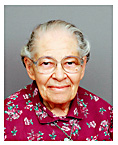
Pisors
Sister Helen Pisors (de Porres) was born in Kansas City, Missouri. She has a bachelor’s degree from Alverno College in Milwaukee, Wisconsin, and a master’s degree from the University of Mississippi in Oxford.
In the Diocese of Jackson, she taught at CADET School in Holly Springs (1969-1980 and 1990-1995) and Holy Family School in Holly Springs (1995 -1998), and served as a volunteer at her convent home in Walls (1998-2006). Sister Pisors currently resides in Campbellsport, Wis.
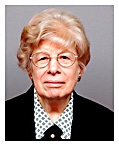
Reinke
Sister Mary Louise Reinke was born in Chicago, Ill. She has a bachelor’s degree from Alverno College in Milwaukee, Wis., and a master’s degree from Jackson State University in Jackson, Miss.
In the Diocese of Jackson, she was principal at St. Francis School in Yazoo City (1965-1966), reading consultant at Christ the King School in Jackson (1966–1969), reading consultant for the diocese (1969-1970 and 1971-1973), teacher at St. Joseph High School in Jackson (1970–1971), director for the St. Francis Head start Program in Yazoo City (1973-1975), and for Yazoo Community Action Head start Program (1975-1998). Sister currently resides in Greenfield, Wis.
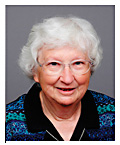
Schmidtknecht
Sister Ramona Ann Schmidtknecht (Sophronia) celebrated her 60th anniversary of religious life. She was born in Galesville, Wis. She has a bachelor’s degree from Alverno College in Milwaukee, Wis., and a master’s degree from St. Louis University in St. Louis, Missouri.
In the Diocese of Jackson she served as a teacher at St. Mary School in Holly Springs (1963-1969); teacher at CADET School in Holly Springs (1969-1995); director at Child Care Center in Holly Springs (1973-1975); teacher at Holy Family School in Holly Springs (1995-1999); and food service manager at Christopher Care Center in Holly Springs (1999-2001) and at Holy Family Early Childhood Center in Holly Springs (2001-2004).
Since 2004, she has taught at Holy Family Early Childhood Center in Holly Springs, where she resides.
Three sisters celebrated 50 years:
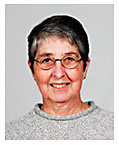
Engelhaupt
Sister Bernadette Engelhaupt (Ronald Marie) was born in Spencer, Nebraska. She has a bachelor’s degree from Alverno College in Milwaukee, Wis., and a master’s degree from Loyola University in Chicago, Ill. In the Diocese of Jackson, she served as parish minister at St. Mary Parish in Iuka (2002-2009). She currently resides in Loup City, Nebraska.
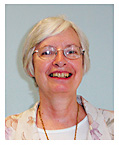
McNulty
Sister Kathleen McNulty was born in Blue Island, Ill. She has a bachelor’s degree from Alverno College in Milwaukee, Wis., and a master’s degree from Colorado State University in Fort Collins, Col. In the Diocese of Jackson, she taught at St. Francis School in Yazoo City (1968-1969) and CADET School in Holly Springs (1969-1975 and 1976-1978). She currently resides in Chicago, Ill.
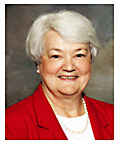
Heiderscheit
Sister Dorothy Heiderscheit, was born in Holy Cross, Iowa. She received a bachelor’s degree from Briar Cliff University, Sioux City, Iowa, and Marycrest College in Davenport, Iowa; and a master’s degree from Tulane University, New Orleans. She served at Region V Community Mental Health Center, Greenville; Catholic Charities, Jackson, and was a member of the congregation’s leadership team.
Sister Heiderscheit is currently the CEO of The Southdown Institute, Holland Landing, Ontario, Canada.
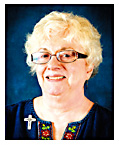
Picucci
INDIANA – Sister Loretta Picucci, a native of Chicago, is one of 10 Sisters of Providence of Saint Matry-of-the-Woods, who will celebrate 50 years with the congregation this year. She currently ministers in Hispanic ministry at Providence in the Desert, Coachella, Calif. She graduated from Loyola University with a bachelor’s degree in Latin. In the Diocese of Jackson se served in Tunica at Outreach Service Minister, Sacred Heart Mission (1983-91).
























